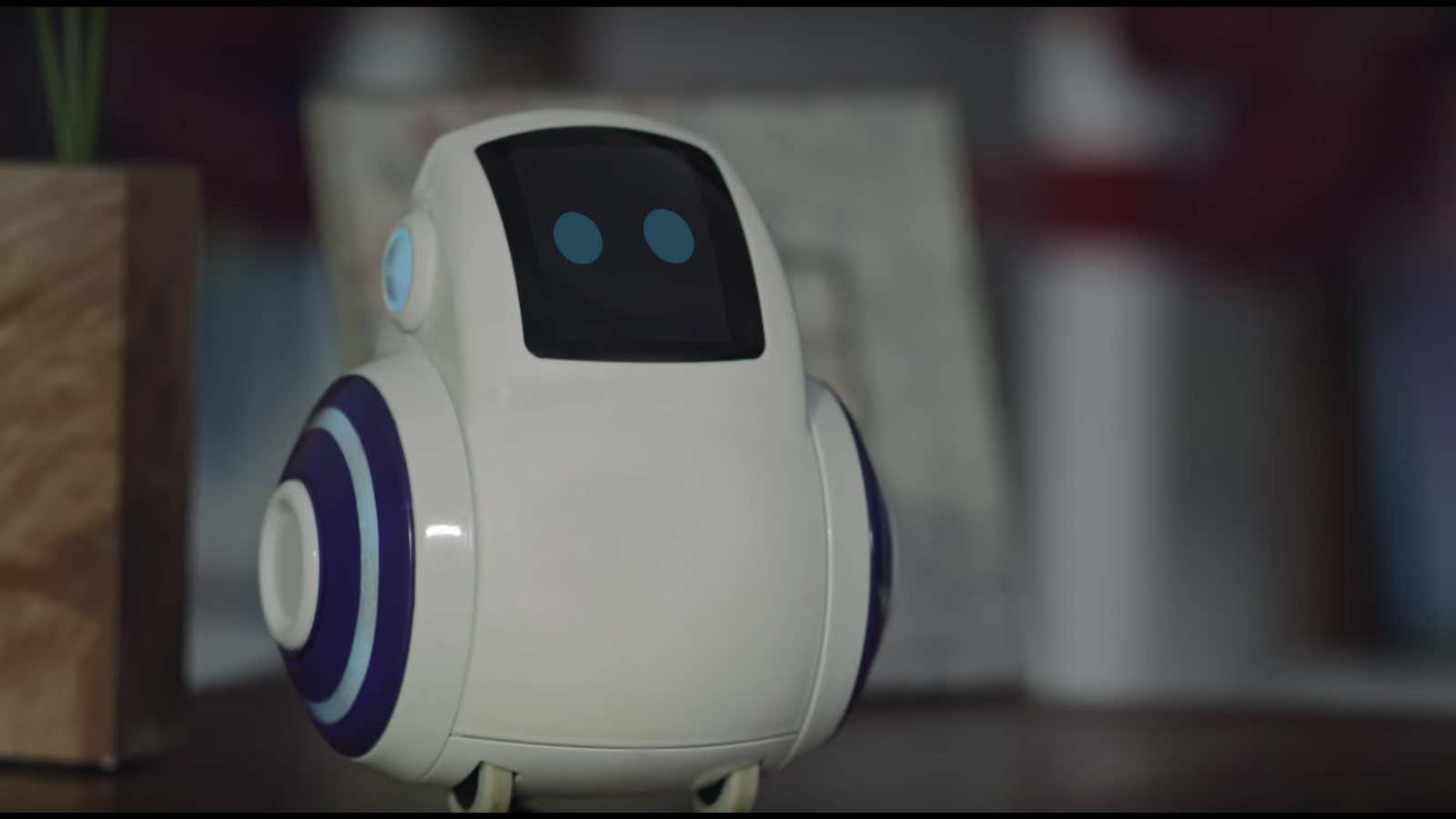Around a decade ago at the Indian Institute of Technology Bombay (IIT-B), classmates Sneh Rajkumar Vaswani, Chintan Subhash Raikar, and Prashant Iyengar were involved in a project to build intelligent underwater vehicles for the India Navy and the oil and gas industry. In the process, they developed a knack for artificial intelligence (AI) and robotics.
That culminated in their setting up of emotix in 2015, and this startup has now developed Miko, India’s first companion robot.
Miko, weighing around 750 grams and standing a little over a foot, engages, educates, and entertains children above the age of five.
Besides talking to and playing games with the kids, Miko is also equipped to answer basic questions related to general knowledge and academics.
But that’s not all.
An AI-based robot developed in association with an in-house team of engineers, mathematicians, artists, and neuro-psychologists, Miko goes beyond speech interface to respond to non-verbal cues like motion and physical gestures to incorporate emotions as well.
On April 25, the Mumbai-based startup with 35 employees secured $2 million (Rs13 crore) in a funding round led by IDG Ventures India and Haryana-based venture capital firm YourNest. The funds will be used for research and development (R&D), new product development, and global expansion.
Building Miko

emotix’s founding trio spent over two-and-a-half years running 22 pilot tests before finalising their robot.
“Miko is an outcome of extensive research throughout the country, particularly to identify the unmet needs of parents, of children, their unspelt expectations, which translated into all the features that come bundled with the robot today,” Vaswani, CEO of emotix, told Quartz.
Miko today sells across more than 100 offline retail stores of Croma, Hamley’s, and others, besides being available on e-commerce marketplaces such as Amazon and Flipkart.
It costs just Rs19,000 ($280), far lesser than social robots from around the world such as the China-made iPal that cost up to a few thousand dollars. “Keeping the India-focus strong and affordability in mind, we wanted to create a robot that is lucrative in our domestic market,” Vaswani said
emotix is targeting sales of upwards of 100,000 units by 2021 in India. It expects 40% of the demand to come from tier 2 and 3 cities, and not just from young tech-savvy parents in big cities such as Delhi or Bengaluru.
However, while Miko seems like an easy and affordable fix, parents should be wary of becoming over-dependent on the robot, experts say.
Intelligent bots like Miko and iPal should be looked upon as a more interactive version of a computer or an iPad—enough to keep a child engaged for a brief period of time but not to “replace a babysitter,” Madeline Duva, an adviser to iPal’s parent firm, Avatar Mind, said in October 2016.
Researchers from the University of Lisbon also reason that kids still need human role models to help them develop cultural values, master a sense of morality, and inculcate socially-accepted patterns of behaviour. The ethics around companion robots are blurry at best.
